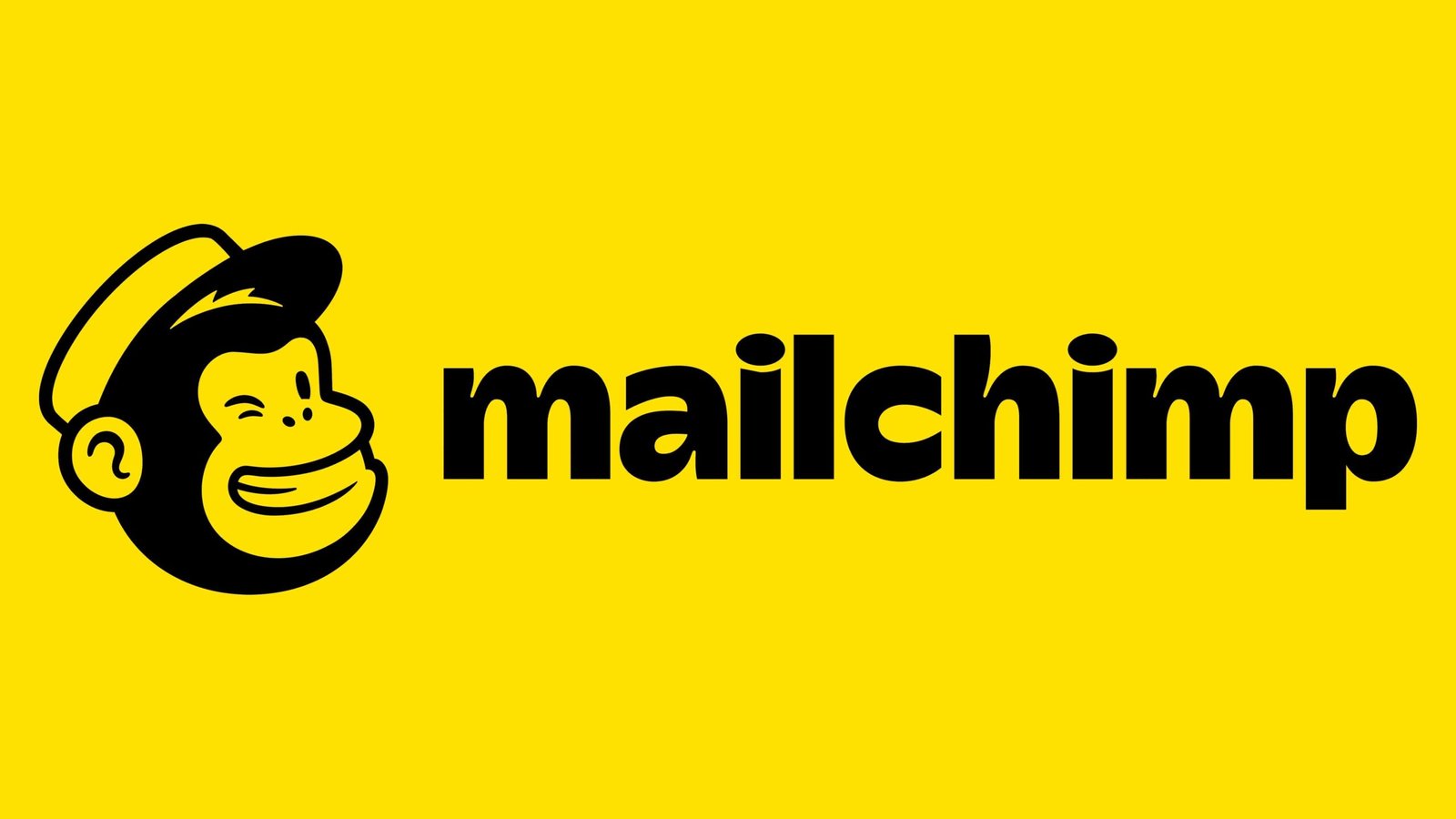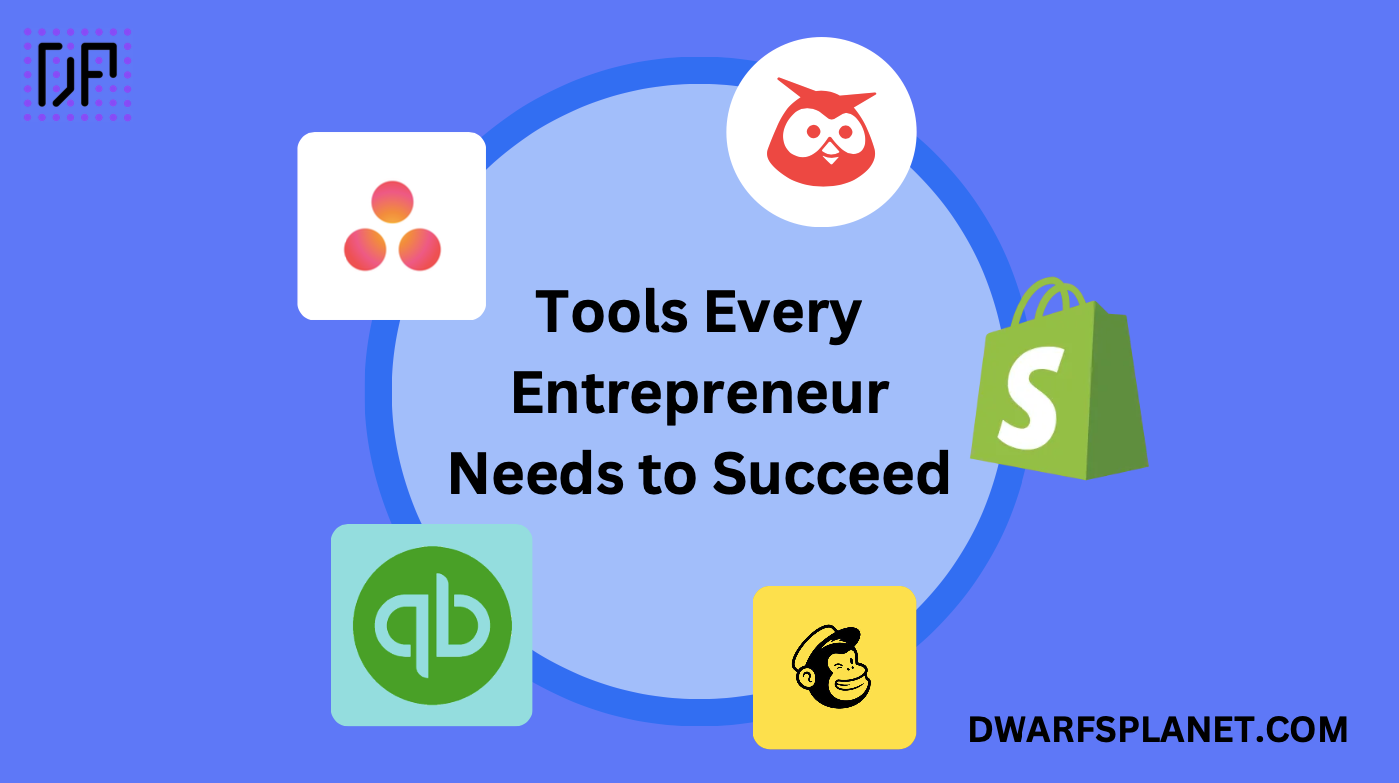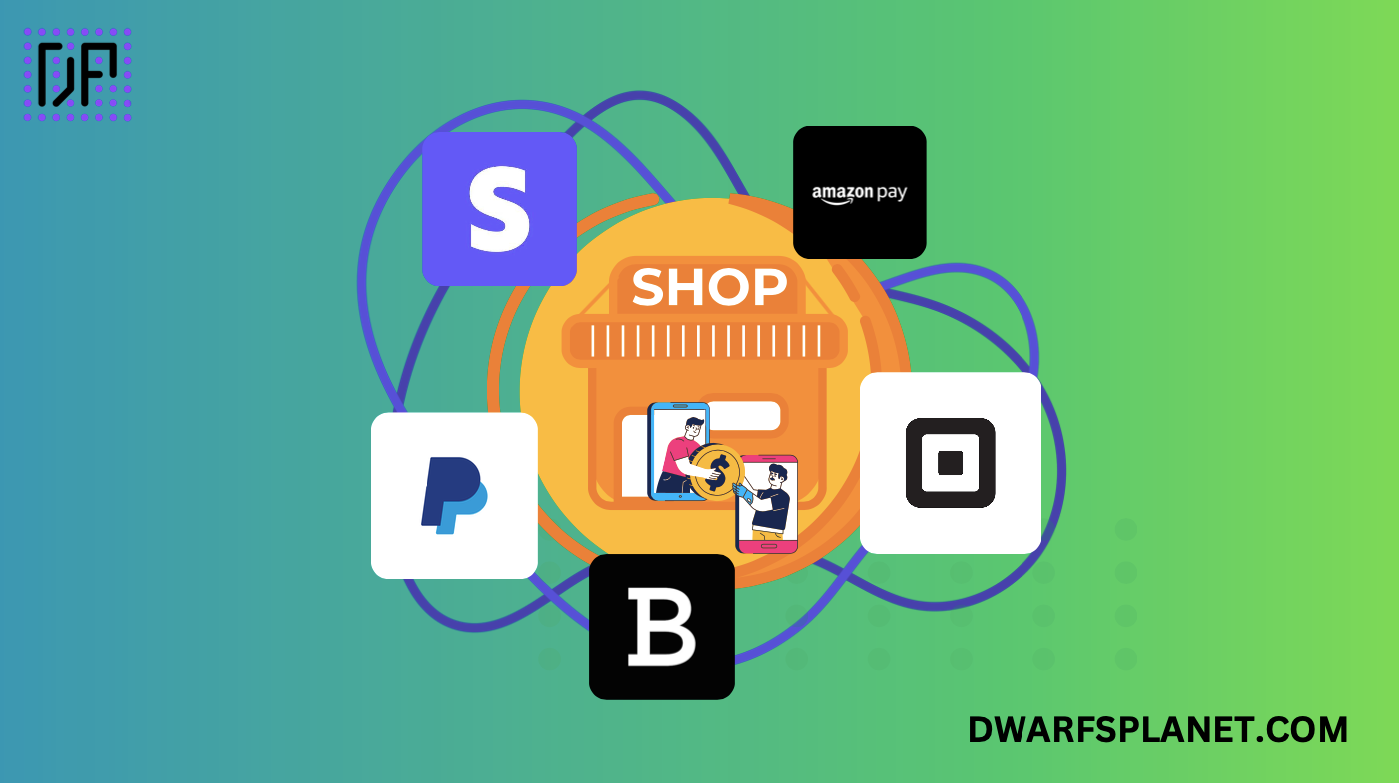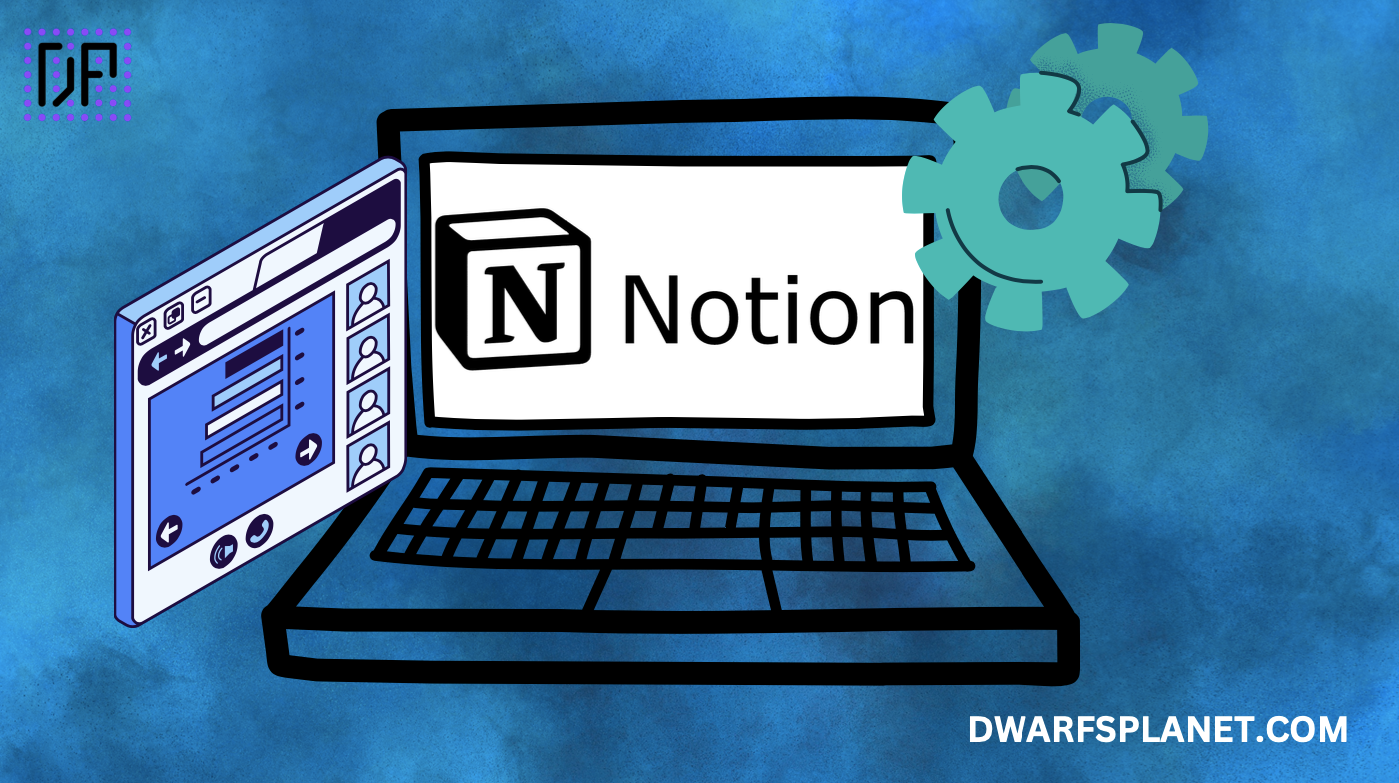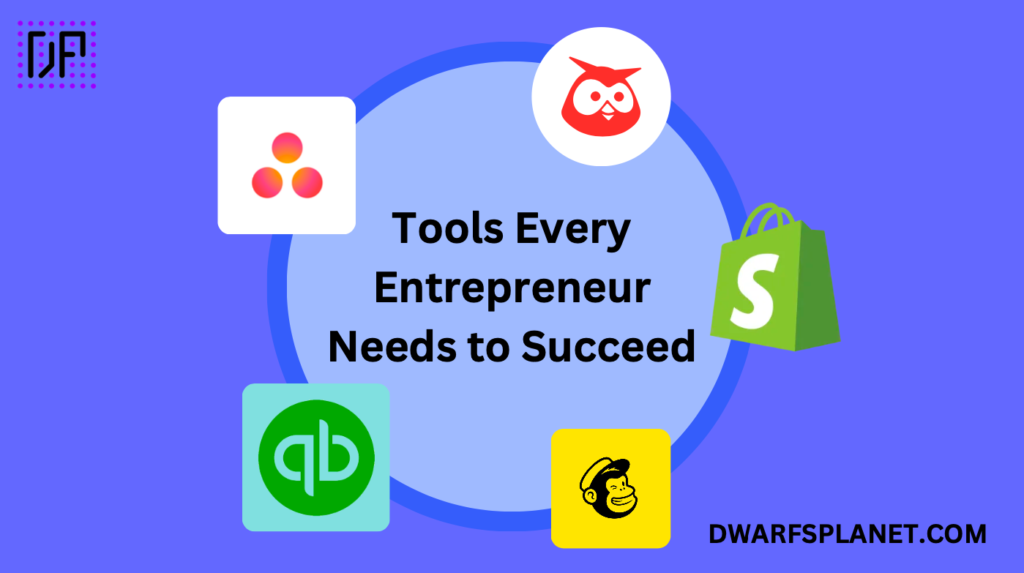
Introduction
Starting and running a successful business requires more than just a great idea—it demands efficient execution, careful planning, and the ability to manage day-to-day operations smoothly. Entrepreneurs face challenges that range from managing projects and communicating with teams to handling finances and marketing efforts. To tackle these effectively, it’s essential to leverage tools that streamline these processes, enabling business owners to focus on what matters most: growing their business.
In this blog, we’ll explore the essential tools every entrepreneur needs to succeed. These tools cover various aspects of business, from project management to marketing, making them invaluable assets for entrepreneurs at any stage of their journey.
List of Essential Tools:
- Trello (Project Management)
- Slack (Communication)
- QuickBooks (Accounting and Finance)
- Google Workspace (Collaboration and File Management)
- HubSpot CRM (Customer Relationship Management)
- Canva (Graphic Design)
- Hootsuite (Social Media Management)
- Mailchimp (Email Marketing)
- Shopify (E-commerce)
- Zoom (Virtual Meetings)
Now, let’s dive into each tool and see why they are vital for entrepreneurial success.
1. Trello
Best for: Project Management and Organization
Main Features:
- Visual Kanban boards for task management
- Drag-and-drop interface for ease of use
- Customizable boards, lists, and cards
- Collaboration features for teams
- Integration with other tools like Slack and Google Drive
Trello is a simple yet powerful project management tool that helps entrepreneurs organize tasks, projects, and workflows. It uses a visual Kanban board approach, making it easy to break down large projects into smaller tasks. Entrepreneurs can create boards for different projects, track progress with lists and cards, and assign tasks to team members.
With its intuitive drag-and-drop interface and integration with other tools, Trello simplifies project management, making it an essential tool for staying on top of deadlines and deliverables.
2. Slack
Best for: Communication and Collaboration
Main Features:
- Real-time messaging
- Channel-based communication for project organization
- File sharing and integration with apps like Google Drive and Dropbox
- Mobile app for on-the-go communication
- Searchable archives for easy retrieval of information
Effective communication is the cornerstone of successful entrepreneurship, and Slack provides an excellent platform for team collaboration. Entrepreneurs can create channels for different projects or departments, ensuring that discussions stay organized and focused. Slack also supports direct messaging and video calls, making it ideal for quick check-ins and discussions.
For businesses with remote teams or clients, Slack is a must-have tool for maintaining seamless communication and collaboration.
3. QuickBooks
Best for: Accounting and Finance Management
Main Features:
- Invoicing and payment tracking
- Expense tracking and receipt management
- Automatic tax calculations and reporting
- Cash flow insights and financial reporting
- Integration with bank accounts and credit cards
Managing finances is a critical aspect of running a business, and QuickBooks makes it easy for entrepreneurs to stay on top of their accounting. The platform allows users to create and send invoices, track expenses, and generate detailed financial reports. With built-in tax calculations and the ability to sync with bank accounts, QuickBooks takes the headache out of financial management.
Whether you’re a solopreneur or managing a small team, QuickBooks provides the tools you need to monitor cash flow and maintain financial health.
4. Google Workspace
Best for: Document Collaboration and File Management
Main Features:
- Google Docs for real-time document creation
- Google Sheets for spreadsheet management
- Google Drive for secure cloud storage
- Google Calendar for scheduling and time management
- Google Meet for virtual meetings
Google Workspace (formerly G Suite) is a comprehensive suite of tools designed for collaboration and productivity. Entrepreneurs can create, share, and collaborate on documents, spreadsheets, and presentations in real-time, all while storing files securely in Google Drive. With built-in email and calendar tools, Google Workspace makes it easy to manage both communication and scheduling.
The seamless integration between apps makes Google Workspace an essential tool for entrepreneurs looking to stay organized and efficient.
5. HubSpot CRM
Best for: Customer Relationship Management
Main Features:
- Contact management and tracking
- Sales pipeline management
- Lead generation and nurturing tools
- Email tracking and automation
- Reporting dashboards for business insights
Customer relationship management is critical for growing businesses, and HubSpot CRM provides a free, powerful platform for managing client interactions. Entrepreneurs can store and track contact details, manage leads through a sales pipeline, and automate email campaigns to nurture customer relationships. HubSpot also offers reporting tools, allowing entrepreneurs to track key metrics and gain insights into their sales process.
With its robust features and free plan, HubSpot CRM is an essential tool for managing customer relationships effectively.
6. Canva
Best for: Graphic Design and Branding
Main Features:
- Drag-and-drop design interface
- Templates for social media posts, presentations, logos, and more
- Access to a library of images, fonts, and graphics
- Collaboration features for team design projects
- Free plan with basic design tools
Canva is a graphic design tool that enables entrepreneurs to create visually appealing content without needing advanced design skills. Whether you need social media posts, marketing materials, or a company logo, Canva offers a wide variety of templates and design elements that can be customized to match your brand. Its drag-and-drop interface makes it easy to design professional-looking graphics quickly.
For entrepreneurs looking to build a strong visual brand, Canva is an indispensable tool.
7. Hootsuite
Best for: Social Media Management
Main Features:
- Schedule and publish posts across multiple social media platforms
- Social media monitoring and engagement tools
- Analytics for tracking performance and engagement
- Content calendar for planning posts
- Free plan with basic scheduling features
Social media is a powerful tool for entrepreneurs to reach their target audience, and Hootsuite helps manage this process efficiently. The platform allows users to schedule posts across multiple platforms, including Facebook, Instagram, Twitter, and LinkedIn, from a single dashboard. Hootsuite also offers analytics to track the performance of social media campaigns, enabling entrepreneurs to optimize their strategy.
For any entrepreneur looking to build an online presence through social media, Hootsuite is a must-have tool.
8. Mailchimp
Best for: Email Marketing and Automation
Main Features:
- Email campaign creation and scheduling
- Automation tools for targeted campaigns
- Audience segmentation and personalization
- Analytics for tracking open rates and engagement
- Free plan with basic email marketing features
Email marketing is an effective way to engage with customers and grow a business, and Mailchimp is one of the most popular tools for this purpose. Entrepreneurs can create visually appealing email campaigns, schedule them for optimal times, and track their performance using detailed analytics. Mailchimp also offers automation features, allowing businesses to send personalized emails to specific segments of their audience.
For entrepreneurs looking to grow their email list and engage with customers, Mailchimp is an essential tool.
9. Shopify
Best for: E-commerce
Main Features:
- Drag-and-drop store builder with customizable templates
- Integrated payment processing
- Inventory management and order tracking
- Mobile-responsive design
- Analytics for sales and customer behavior
Shopify is one of the leading e-commerce platforms, making it easy for entrepreneurs to build and manage an online store. Whether you’re selling physical products, digital downloads, or services, Shopify provides a drag-and-drop builder to create a professional-looking store. It also includes integrated payment processing, inventory management, and analytics to help you track your store’s performance.
For entrepreneurs who want to start or grow an e-commerce business, Shopify is an essential platform.
10. Zoom
Best for: Virtual Meetings and Webinars
Main Features:
- HD video and audio conferencing
- Screen sharing and collaboration tools
- Virtual backgrounds and meeting recording
- Webinars and breakout room functionality
- Free plan with limited meeting duration for group calls
Zoom has become a go-to tool for virtual meetings and webinars, and for good reason. Entrepreneurs can use Zoom for client meetings, team check-ins, or webinars, all with HD video and audio quality. The platform also offers features like screen sharing, virtual backgrounds, and breakout rooms for collaboration. Whether you’re running a small business or scaling your team remotely, Zoom provides the tools needed for seamless virtual communication.
For entrepreneurs who need a reliable platform for virtual meetings, Zoom is essential.
Conclusion
Success in entrepreneurship depends on the ability to manage various aspects of your business efficiently. From project management to customer relations and marketing, the right tools can make all the difference. The tools listed above provide entrepreneurs with the means to streamline operations, improve communication, enhance marketing efforts, and keep their finances in check.
Whether you’re just starting out or running an established business, leveraging these tools will help you stay organized, work more efficiently, and ultimately, achieve your business goals. Embrace the power of these essential tools to elevate your entrepreneurial journey and position yourself for long-term success.
 Skip to content
Skip to content 
